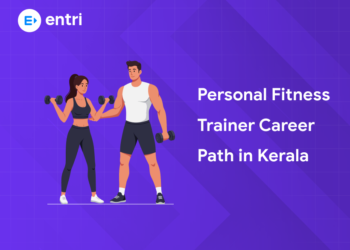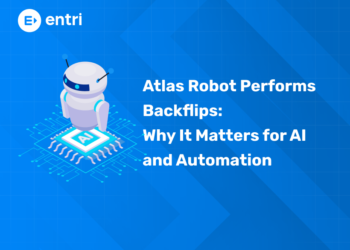Table of Contents
Like any other global technology company, the interview process at Infosys also consists of many rounds to assess the technical and behavioral skills of the applicant. It usually consists of 5 rounds: Online assessment round, technical interview round, behavioral interview round, Managerial interview round, and the HR round. In this article we will concentrate on the technical round and provide you with the Infosys Data Science Interview Questions.
Enhance your data science skills with us! Join our free demo today!
Infosys Data Science Interview
The data science interview process at Infosys typically involves five key rounds: Online Assessment, Technical Interview, Behavioral Interview, Managerial Interview, and HR Interview. Here is a detailed explanation of each round:
Online Assessment Round
The online assessment round tests your basic skills and aptitude. It includes questions on logical reasoning and quantitative ability. There are also programming questions in languages like Python or R. Domain-specific questions test knowledge of statistics and probability. This round ensures candidates have a solid foundational understanding.
Technical Interview Round
The technical interview assesses your problem-solving skills and technical expertise. You’ll face coding problems and need to optimize code. There are in-depth questions on machine learning algorithms. Case studies involve real-world data science problems. Discussing past projects is also a key component.
Behavioral Interview Round
The behavioral interview evaluates your soft skills and cultural fit. Expect questions on teamwork and conflict resolution. Scenario-based questions gauge your decision-making skills. Experience-based questions explore how you’ve handled challenges. This round focuses on your interpersonal skills.
Managerial Interview Round
The managerial interview assesses your fit for the team and organization. Questions focus on project management and leadership skills. You’ll discuss aligning projects with business objectives. Domain-specific knowledge may be tested. This round evaluates strategic thinking and leadership potential.
HR Round
The HR round covers cultural fit and compensation details. Discuss your alignment with Infosys’s values. You’ll talk about salary expectations and benefits. Work conditions and potential relocation are also covered. Final background checks are done before making an offer.
Infosys Data Science Interview Preparation Tips:
1: Which of the following algorithms is most suitable for classification tasks?
Online Assessment
- Practice Aptitude Tests: Improve logical and quantitative skills.
- Review Programming Basics: Focus on Python or R.
- Study Data Science Concepts: Cover statistics and probability.
- Take Mock Tests: Simulate real test conditions.
Technical Interview
- Brush Up on Core Topics: Focus on data science fundamentals.
- Practice Coding Problems: Use platforms like LeetCode.
- Prepare Case Studies: Understand real-world applications.
- Review Past Projects: Be ready to discuss details.
Behavioral Interview
- Reflect on Experiences: Think about past challenges.
- Practice Common Questions: Use STAR method.
- Prepare Scenarios: Develop decision-making examples.
- Focus on Soft Skills: Highlight teamwork and communication.
Managerial Interview
- Understand Role Expectations: Know what the team needs.
- Think Strategically: Align your skills with business goals.
- Show Leadership Examples: Discuss how you’ve led projects.
- Review Domain Knowledge: Be ready for specific questions.
HR Round
- Research Infosys Culture: Understand their values.
- Clarify Compensation Expectations: Know your worth.
- Prepare Questions: Ask about the role and company.
- Ensure Background Details: Be honest and clear.
🚀 Start Coding Today! Enroll Now with Easy EMI Options. 💳✨
Equip yourself with in-demand skills to land top-tier roles in the data-driven world.
Start Learning Now with EMI OptionsWhy Join Infosys as a Data Scientist?
Career Growth Opportunities
- Diverse Projects: Work on various industry-specific projects.
- Global Exposure: Collaborate with international teams.
- Skill Development: Access continuous learning programs.
Innovation and Technology
- Latest Tools: Use the newest data science tools.
- Research Projects: Engage in R&D projects.
- AI and ML: Work on advanced AI and machine learning projects.
Strong Corporate Culture
- Inclusive Environment: Join a diverse workplace.
- Ethical Standards: Be part of a company with strong values.
- Employee Well-being: Access health and wellness programs.
Collaborative Work Environment
- Team Collaboration: Work with talented professionals.
- Mentorship: Get guidance from experienced mentors.
- Cross-Functional Teams: Collaborate across different functions.
Impactful Work
- Business Solutions: Solve real-world business problems.
- Social Responsibility: Participate in social initiatives.
- Sustainable Practices: Work for a company committed to sustainability.
Competitive Compensation and Benefits
- Attractive Salary: Receive a competitive salary.
- Comprehensive Benefits: Access health insurance and retirement plans.
- Work-Life Balance: Enjoy flexible working hours and remote work options.
Learning and Development
- Training Programs: Participate in continuous learning.
- Certifications: Earn industry-recognized certifications.
- Knowledge Sharing: Engage in workshops and sessions.
Enhance your data science skills with us! Join our free demo today!
Top infosys Data Science Interview Questions and Answers
What is Python and R?
- Python: A programming language known for its simplicity and versatility. It has many libraries for data science, such as pandas, NumPy, and scikit-learn.
- R: A programming language focused on statistics and data visualization. It has powerful packages like ggplot2 and dplyr for data analysis.
What is L1 and L2 Regularization?
- L1 Regularization (Lasso): Adds a penalty equal to the absolute value of the coefficients. It can shrink some coefficients to zero, which helps in feature selection.
- L2 Regularization (Ridge): Adds a penalty equal to the square of the coefficients. It shrinks coefficients but doesn’t usually set them to zero.
What is an Activation Function?
- An activation function is used in neural networks to decide whether a neuron should be activated or not. It adds non-linearity to the model, allowing it to learn complex patterns. Common examples include ReLU (Rectified Linear Unit), Sigmoid, and Tanh.
Explain Naive Bayes
- Naive Bayes is a simple yet powerful classification algorithm based on Bayes’ Theorem. It assumes that the features are independent of each other (hence “naive”). Despite this strong assumption, it works well for many problems like spam detection and text classification.
What is a Confusion Matrix?
- A confusion matrix is a table used to evaluate the performance of a classification model. It shows the actual versus predicted classifications. The matrix includes four key terms: True Positive (TP), True Negative (TN), False Positive (FP), and False Negative (FN). This helps in understanding the accuracy, precision, recall, and other performance metrics.
What are Hyperparameters in Deep Learning?
- Hyperparameters are settings that control the training process of a machine learning model. Unlike model parameters, they are not learned from the data but are set before training. Examples include learning rate, number of epochs, batch size, and number of layers in a neural network. Tuning these hyperparameters can significantly affect the model’s performance.
What is Hypothesis Testing?
- Hypothesis testing is a statistical method used to make decisions about a population based on sample data. It involves forming a null hypothesis (no effect or status quo) and an alternative hypothesis (some effect or difference). By calculating a p-value, we determine whether to reject the null hypothesis. It helps in assessing the validity of assumptions or claims.
What are the popular libraries used in Data Science?
- The popular libraries used in Data Science are:
| Python Libraries | R Libraries |
|---|---|
| pandas | ggplot2 |
| NumPy | dplyr |
| Matplotlib | tidyr |
| Seaborn | caret |
| scikit-learn | shiny |
| TensorFlow | |
| Keras | |
| PyTorch | |
| SciPy | |
| Statsmodels |
What is variance in Data Science?
- Variance tells us how much each number in a dataset differs from the average. It shows the spread of values around the mean. Data scientists use variance to see how data is spread out and to understand its distribution.
Ready to take your data science skills to the next level? Sign up for a free demo today!
Infosys Data Science Interview Questions: Conclusion
Infosys data science interview questions cover fundamental topics like Python and R proficiency. They delve into machine learning concepts such as regularization and supervised versus unsupervised learning. Understanding these areas will prepare you well for technical assessments and discussions.
🚀 Start Coding Today! Enroll Now with Easy EMI Options. 💳✨
Equip yourself with in-demand skills to land top-tier roles in the data-driven world.
Start Learning Now with EMI OptionsFrequently Asked Questions
What programming languages should I be proficient in for Infosys data science roles?
Infosys values proficiency in Python and R, as these are widely used in data analysis and machine learning.
What machine learning concepts are important to know for Infosys interviews?
Understand concepts like supervised learning, unsupervised learning, regularization (L1 and L2), and model evaluation metrics.
How important is understanding data visualization tools like Matplotlib and ggplot2?
It’s crucial. Infosys values the ability to visualize and interpret data using tools like Matplotlib (Python) and ggplot2 (R).
What are the key steps to building and deploying a machine learning model at Infosys?
Be prepared to discuss data preprocessing, model selection, training and testing, validation, and deploying models in production environments.
How does Infosys assess a candidate’s ability to solve real-world data science problems?
Expect questions on how you’ve applied data science techniques to solve practical problems, and be ready to discuss your past projects and their outcomes.













